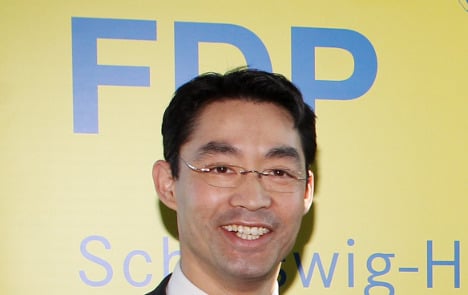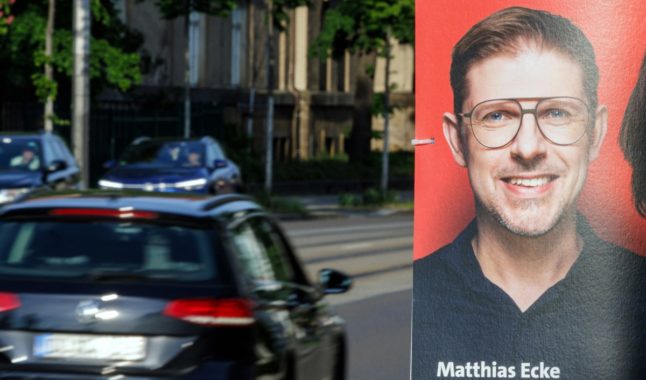The latest weekly opinion poll by state broadcaster ARD gave the FDP a much-needed psychological boost after months as a political pariah.
The poll, published Friday, puts Vice Chancellor Philipp Rösler’s party one percentage point up, with five percent of the population saying they would vote FDP if there were an election on Sunday.
Five percent is a vital electoral hurdle in the German system – less than that and a party cannot generally return MPs to the lower house of the German parliament, the Bundestag.
The FDP’s reinvigoration is apparently down to moderate successes in two recent state elections – in Schleswig-Holstein and North Rhine-Westphalia, where the business-friendly party scored 8.2 and 8.6 percent respectively, despite miserable poll predictions.
But while this is good news for Merkel, her own Christian Democratic Union (CDU) dropped back a point to 33 percent – leaving the government coalition on a combined 38 percent, well behind a potential centre-left coalition made up of the Social Democratic Party and the Greens, who together boast 42 percent.
While there has been a clear swing towards the centre-left in Germany in recent weeks, especially with the triumph of Hannelore Kraft’s Social Democratic Party in North Rhine-Westphalia last week, that poll suggests a potential “red-green” coalition would not have enough seats to form a national government.
That’s because the Pirate Party would – if there were an election on Sunday – sail into the Bundestag, and split the parliament into six, rather than five, factions.
According to ARD, the Pirates are currently holding a steady course on 11 percent, and have become Germany’s fourth biggest political party in the past few months – ahead of both the FDP and the socialist Left party.
Germany’s next general election is scheduled for autumn 2013. The current political climate in Europe – particularly in France, which elected a Socialist president earlier this month – suggests that Merkel has every reason to fear for her post.
The Local/bk



 Please whitelist us to continue reading.
Please whitelist us to continue reading.
Member comments